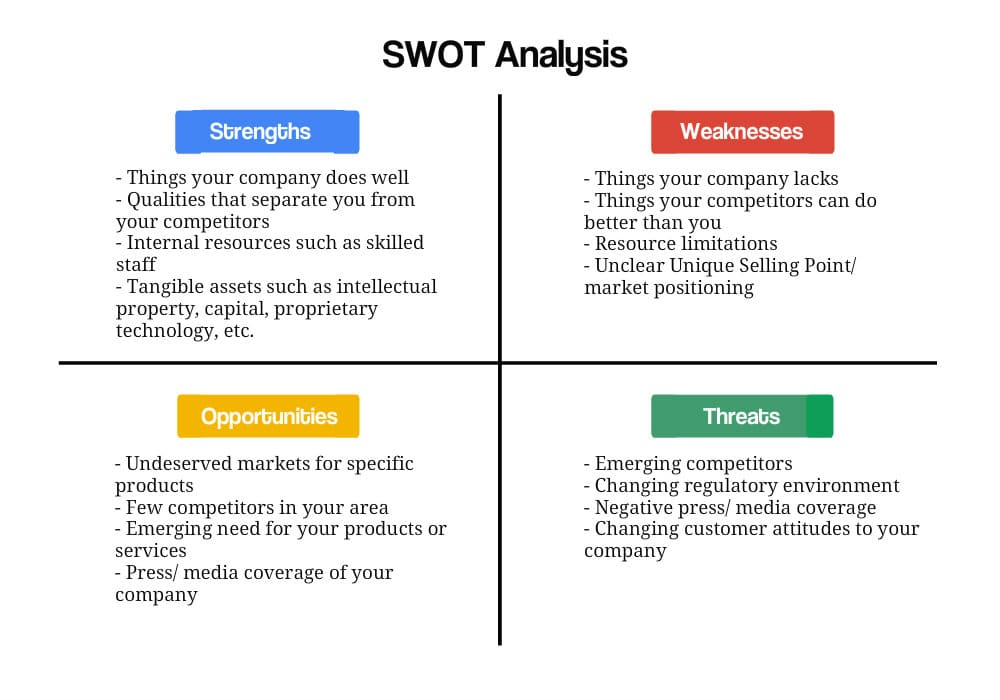Strategic planning has always been associated with improved efficiency and sustainable growth. However, the dynamic world and hectic market competition make planning in management essential. Thus, whether you like it or not, the familiar management saying holds true: If you fail to plan, plan to fail.
In this article, you will find:
- the definition of planning in management,
- 10 compelling reasons why planning in management is so important
- reasons why some managers fail and others succeed in planning effectively.
By understanding the key benefits of planning in management, you will be more motivated to devote due time and effort to this part of your role. This will make you and your company enjoy the ultimate outcomes of good planning: efficiency and growth.
Planning in Management
To be effective and develop its potential, a company should work towards a desired goal or mission. But how can one know what is relevant to the goal and what’s not?
This is what planning is about.
Planning in management is about what steps you need to take to reach the goal, what changes and hurdles to anticipate, and how to utilise human resources and opportunities to reach the expected outcome. The planning process involves a careful analysis of the current resources and market trends and the prediction of emerging markets and future demand.
In simple terms, a goal is where your company wants to be at a certain time and a plan provides directions for how you are going to get there.
Planning is considered a basic function of management. It means that a plan is necessary for any other managerial function, be it organising, directing, staffing, or controlling:
- Planning dictates how to effectively organise a business. It encompasses determining necessary future activities, assigning them to the right personnel, delegating authority, providing tools and raw material, etc.
- Having a plan of action facilitates directing as it makes instructions, guidance, and motivation grounded in a brand strategy.
- Planning informs staffing, as it shows what work-force a company will need.
- Establishment of standards and measurement of actual performance – controlling – is done against the expectations that planning sets
Informal planning gives a short term focus, which might be necessary for the business to operate. In an organisation, various units can have their own informal plans. However, if the company wants to grow and reach ambitious goals, the process of planning should be formal, written, specific, and involve common organisational goals.
Get reliable video conferencing for your remote teams
10 Reasons that Make Planning in Management so Important
Planning is important both for small and medium-sized businesses and large enterprises with complex structures. Here are 10 compelling reasons that prove this:


1. It Helps to Set the Right Goals
While a plan is a course of action towards the realisation of the goal, it also supports SMART goal setting. In particular, planning helps to critically assess the goal to see if it’s realistic. It facilitates decision making and allows setting a time frame by predicting when the company can achieve its goal. It also defines how to measure performance against the set goals and whose responsibility it will be.
2. It Sets Objectives and Standards for Controlling
A primary function of strategic formal planning is providing direction to lower-level managers, allowing the development of tactical goals. Planning shows objectives for each organisational department and helps managers to prioritise activities depending on their relevance to the goal.
Planning also sets the standards for assessing performance. Without such standards, managers wouldn’t be able to intervene and take corrective actions to stay on track, which would also threaten the goal.
3. It Reduces Uncertainty
The uncertainty of the future puts the great risk on business sustainability, for it is always difficult to manage through change. No organisation can control the economic and competitive environment; thus, the ability to anticipate challenges and have contingency plans in place is the best alternative.
Planning involves an intentional critical evaluation of the available data and experts’ predictions. This makes planning in management very helpful in terms of reducing the uncertainty of the future and avoiding the risks.
4. It Eliminates Overlapping of Wasteful Activities
Effective planning gives clarity about the responsibilities and expectations of each department, team, and even team member. This helps to make sure that the activities don’t overlap and improves co-ordination.
At the same time, it helps to determine which activity is wasteful and does not contribute to reaching the goal. Eliminating such activities will not only reduce wastage and save valuable time and resources but also improve productivity and motivation.
5. It Ensures Efficient use of Resources
Planning makes the use of human and material resources as efficient as possible. By starting the management process with a good plan that focuses on the ultimate goal and considers available capabilities, you can see many opportunities to cut expenses.
Without such a plan, it is easy to fall for appealing B2B offers. This can waste organisational resources on the raw materials that the employees cannot process in a due time, expensive robotics, or online software that speeds up only one aspect of the process not affecting the overall result.
6. It Promotes Innovation
If the organisation has a challenging goal on the one hand, and the possibility of hurdles and market change on the other hand, it starts brainstorming creative ideas and solutions. Determining a future course of action is an important function of management. Keeping a focus on the need to reach the goal, employees or management can spot new opportunities for business development, suggest new products or services, or discover new target markets. This way, planning becomes a continuous process that encourages creative strategic thinking and innovation.

7. It Improves Decision Making
Planning improves decision-making processes and time management in two ways. First, it helps managers to keep the focus on a goal and thus ask themselves how alternative courses of action might facilitate or delay reach it. Second, the plan allows managers to be more farsighted: having a clear road map, they can think what effect an adopted decision will have on some long-term tasks and activities.
Without such a plan, managers’ decisions may not be strategic but based only on the available data and current situation.
8. It Boosts Motivation and Team Spirit
It is a common fact that people feel more engaged and motivated if they understand the relevance of their work. Planning shows the link between individual input and a larger goal, which it helps to achieve.
It also shows that each person in the business environment is indispensable to reaching the common goal. This helps to reduce internal competition and nurture community and team spirit. You can use motivational quotes in your pep talks to help enthuse your team.
9. It Helps to Earn Credibility and Trust of Stakeholders
All managers understand that a solid plan is needed to persuade creditors and investors to help. However, sometimes they forget that the turbulent market environment can drive the need to engage them without planning to do so. Having a formal business plan readily available will have a great impact if you need to find and engage new investors in a short period of time.
The availability of clear goals and a formal plan also shows your social responsibility and increases the trust of employees and clients.
10. It Gives a Competitive Edge and Allows Strategic Positioning
Planning involves getting a realistic view of organisational strengths and weaknesses, as well as revealing the gaps and vulnerabilities of the competitors. Acting upon this data rather than inertly performing the same actions gives a great competitive edge.
What’s more, planning helps to reveal the growing markets and enter them with new products or services earlier than any other competitor, enjoying the first-mover advantage.

Why Some Managers Fail to Plan
Although planning is a basic function of management, in practice, many managers neglect it. You may think that they don’t need formal types of planning, as they can use their strategic vision and gut instinct to keep the organisation on track even without it. However, this is not true. Here are the key reasons why managers fail to create a strategic plan:
- They underestimate the importance of planning.
Many managers hold a get-things-done attitude, failing to stop and analyse the right things they need to do. They don’t understand how planning can affect performance and are not willing to change anything.
- They lack time for planning.
Planning takes a lot of time and managers have too many responsibilities. As a result, it is common that managers only think about strategic plans at home or when commuting to work. This can result in a failure to plan. Managers should specifically schedule planning. If it is difficult to find time for this role, a manager should delegate more responsibilities and avoid micromanaging.
- They don’t have the necessary knowledge.
There are many tools used in planning such as SWOT analysis, PESTLE Analysis, VRIO Framework, environmental scanning, resource analysis, etc. If a manager didn’t get good training in management, he/she may fail to plan effectively and thus see no sense in it. It may also be that they lack experience in certain areas – creating a marketing plan is very different from operational planning.

- They have too much reliance on their experience.
Some managers might have succeeded with an absence of planning, leading them to think that planning is just a waste of time. They attribute success to their own abilities rather than favourable conditions.
- They lack self-discipline.
Setting and pursuing goals, either personal or organisational requires dedication and discipline. Often, managers need to develop their personal strengths and skills for effective planning in management.
- They lack meaningful objectives and goals.
Sometimes, managers avoid planning because there is no goal that will engage or motivate them to do so. This often happens with companies that operate without any mission statement.
5 Factors to Successful Strategic Planning
If you understand the importance of planning in management and want to grasp all the benefits of this function, consider the following 5 factors that determine the effectiveness of planning.
1. Engagement
Although planning is a managerial function, it should not be done by one person behind a closed door. On the contrary, it is the task of a manager to make planning a collaborative and inclusive process. Make your employees feel engaged in the process of planning, and they will be eager to commit to the plan and take on shared responsibility for its realisation. They might even have innovative ideas you would otherwise have missed.
2. Data, not assumptions
We all hold assumptions about businesses and markets, but they are not necessarily true. Basing your plan on assumptions is a grave mistake that overrides all the advantages of proper planning. It is important to do market research, host focus groups, talk to one’s own employees, consult market experts – gain any information that will help to base decisions on data rather than assumptions.
3. Communication
It is important to clearly communicate the desired results and the strategic plan to the employees. Nurture open communication encouraging everyone to give feedback and suggest improvements to the plan. Note that some benefits of planning, such as innovation in particular, depend on how eager employees are to voice their ideas and whether they feel heard and appreciated for giving them.
4. Culture of growth
A true focus on improving efficiency and growth can be maintained only in a culture that values efficiency and growth. Work to create such a culture in your organisation. If you help your employees to learn and develop their skills, appreciate and reward personal achievements, employees will be more willing to commit to ambitious goals and demanding plans.
5. Commitment to change
Effective planning requires letting go of outdated processes, revision of strategies, innovation, hiring and firing. All this means change, which is difficult to manage. Still, to truly benefit from the advantages of planning, a manager should be ready to go beyond the cosmetic changes and face the possible resentment of the team. In this respect, planning in management is a function that requires much courage and commitment.
Concluding Thoughts
Effective strategic planning will help to create a formal yet actionable document guiding priorities and day-to-day activities of your organisation. It requires much knowledge and effort, but the benefits of planning in business management make them fully justified and can eventually allow you to become a better manager. In particular, planning will help you set the right goals, reduce future uncertainties, achieve efficient use of human and material resources, engage employees, and much more.
If you understand the importance of planning, you should be ready to work on your personal qualities, professional skills, and organisational culture to succeed with effective planning. Last but not least, you should be ready to change: you cannot get different results unless you try different approaches.
Author bio: Nataly Havrysh is a marketing manager at Chanty. Nataly is an editor and content writer thrilled about researching topics in sociology, psychology, personal growth, modern IT trends, management, and internet marketing. An active mom passionate about her work, Nataly is a pro in personal time management.
Originally published Nov 06, 2019, updated Jan 16, 2023

Training should be universal and well-suited to the requirements of both the employee as well as the company they are working for. This is where HR talent management software can be of great help to an organization. Offering training to all levels of employees will not only enhance their skills and capabilities for a particular role, it will also promote a culture of “non-stop learning” within a team. This further helps develop better thinkers and problem solvers with quality job performance.